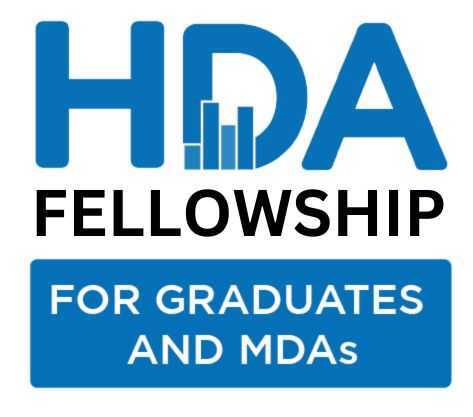Introduction
The eHealth for Everyone Foundation, in collaboration with the Federal Ministry of Health (FMoH) and the National Universities Council (NUC), introduced the Health Data Analytics (HDA) Research Fellowship programmes in 2021. The fellowships are targeted towards postgraduate student researchers and staff members of Ministries, Departments and Agencies (MDAs).
The overall goal of these fellowships is to improve health data analytics for enhanced decision-making in Nigeria. This will be achieved through strengthening the institutional capacity of the departments and agencies responsible for managing the Nigerian health information system, and building capacity for health data analytics and related areas at higher academic and research levels. The fellows are expected to prioritise secondary data and focus their research on key areas that will expand data platforms like the Multi-Source Data Analytics and Triangulation (MSDAT) Platform.
Selection Process
Selecting the right candidates was a crucial step in achieving our goals. So far, we have selected eight fellows (two graduate fellows and six fellows from MDAs), considering their academic backgrounds, affiliations with the MDAs, and the quality of their research proposals. This diversity has not only enriched the program but also fostered an environment where different perspectives are valued.
Achievements and Impact
The outcome of the Health Data Analytics Fellowship Program has been remarkable. Our fellows are working on providing new data, indicators or features through their research projects. One of our graduate fellows, a graduate student from the National Open University of Nigeria (NOUN), is utilising her skills in data analytics to identify maternal mortality hotspots in the North-West Geopolitical Region of Nigeria. The result of her research will be included on the Geographic Information System (GIS) sub-dashboard and will aid in pinpointing areas with elevated burdens of maternal mortality in Nigeria.
Another graduate fellow, a student at the University of Ibadan, is carrying out research on the Long Short-Term Memory Algorithm to predict measles outbreaks and enhance measles outbreak surveillance. His research is expected to provide a prediction model to forecast disease outcomes on the MSDAT. Both fellows are currently rounding up their program and we are working towards awarding more graduate fellows.
Similarly, on the fellowship for MDAs, the awarded fellows from the Federal Ministry of Health, Nigeria Center for Disease Control (NCDC), Radiographers Registration Board Of Nigeria, Federal Capital Territory Primary Health Care Board, and National Primary Health Care Development Agency are working on research projects across diverse health program areas including Health outcomes, Health service uptake, Disease surveillance, Healthcare financing, and Health workforce.
The Health Data Analytics fellowship programme has not only empowered skilled individuals but also created a tight-knit community of like-minded professionals.
Lessons Learned and Future Plans
Running a program of this scale has come with its share of challenges, but we have learned valuable lessons and improved the program to meet the needs of our fellows and the Nigerian healthcare sector. We are excited about the future of the Health Data Analytics Fellowship programmes and aim to expand our reach and continue to make a significant impact in healthcare analytics.
We invite suitable candidates interested in participating in the program to read the eligibility criteria at https://ehealth4everyone.com/hda and follow the instructions for the application process.
Conclusion
The HDA Fellowship programme is at the forefront of transforming Nigeria’s healthcare landscape. The eHealth for Everyone Foundation and its partners remain dedicated to strengthening institutional capacity, fostering research excellence, and empowering healthcare leaders, this initiative has the potential to pave the way for data-driven decision-making that will improve healthcare outcomes.


